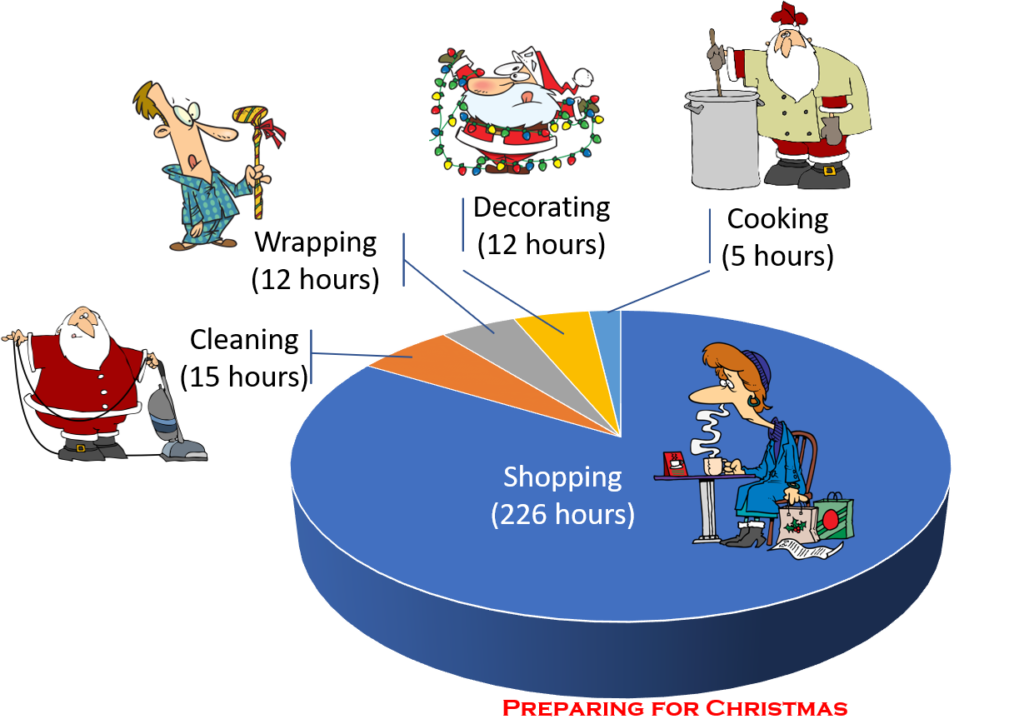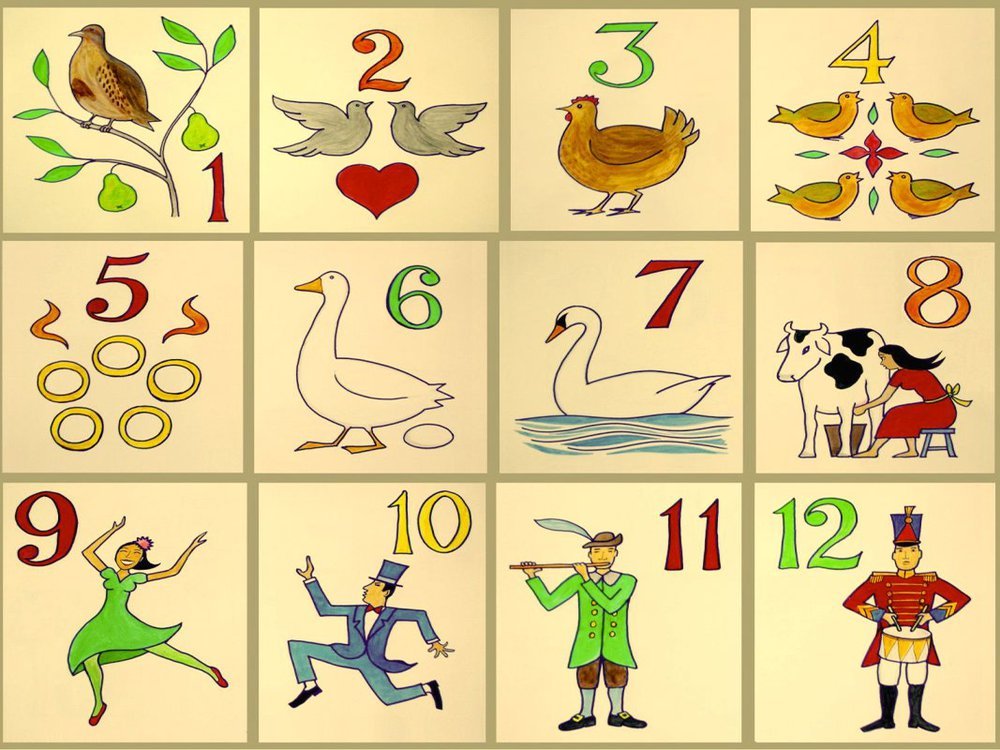Tomorrow most Christians around the world celebrate the Christmas holiday. Thanks to the lights, tinsel, trees, and presents associated with this end-of-the year-end celebration, even some non-Christian countries will join in on the festivities. A few years ago, the folks at Fantastic Services prepared an infographic entitled “What Does It Take to Prepare for Christmas.” Their conclusion was that it “takes around 270 hours, on average,” to complete all the activities associated with the holiday.

I’m exhausted just thinking about it. Since shopping consumes the greatest portion of our Christmas preparations, it’s little wonder that at-home, online shopping has become so popular — especially during the pandemic. The challenge this year has been finding what you desire at a price you can afford.
In the run-up to Christmas, journalist Terry Nguyen (@terrygtnguyen) reported that experts were predicting that this year’s holiday shopping season would be “a perfect storm” of supply chain bottlenecks.[1] Nguyen commented, “Shoppers, as a result, will face higher prices, even as retailers remain uncertain as to whether they can keep up with demand.” By now, you know whether your shopping efforts were productive or disappointing. Steven Melnyk, a professor of supply chain and operations management at Michigan State University, told Nguyen, “This year, Christmas will be very different. We won’t see as many blowout sales leading up to the holidays, and prices are going to go up.” If he’s correct, then we probably won’t see many after-Christmas sales either. This could be a problem for those of you planning on giving your beloved the traditional “Twelve Days of Christmas” gifts.
The reason I note that “after-Christmas sales” could impact the gifts given during the Twelve Days of Christmas is that, contrary to many people’s belief, the twelve days follow, rather than precede, Christmas Day. Many of us have grown-up with the notion that the traditional Christmas carol concerns the twelve days leading up to Christmas. Historically, however, the twelve days of Christmas begin on Christmas Day and end on 5 January, which, in the Catholic faith, is known as the Feast of the Epiphany.
If giving the twelve days of Christmas gifts is on your bucket list, you would have been better-off giving during last year’s Covid-affected holiday. A shortage of products and rising inflation could make the gift-giving this year very costly. According to PNC analysts, the total cost of giving the twelve days of Christmas gifts last year plunged dramatically (down nearly 60% from 2019). They explained, “The true cost of Christmas decreased in 2020, as [the 2020] index account[ed] for cancellations of many live performances. It [was] a silent night at most symphonies and the lights … dimmed for many dancers [during the] holiday season, which contributed to the year-over-year decline.” The 2019 PNC Christmas Price Index® hit a record $38,993.59, while the 2020 Index topped out at $16,168.14, the lowest total in the Index’s 38-year history. This year PNC analysts predict the cost of the gifts will be a record-breaking $41,205.58.[2]
Why are the gifts so expensive? Because they are cumulative. Freelance journalist Kat Eschner (@KatEschner) explains, “This Christmas classic [is] written in a poetic form called ‘cumulative verse,’ where each patterned verse contributes to a longer narrative.”[3] In other words, the gift (or gifts) given on the previous day are also given on the next day along with an additional gift (or gifts). By the end of the twelve days of Christmas, those five golden rings end up being 35 golden rings! What we now recognize as a Christmas carol began as a poem. Eschner reports, “According to the Oxford Dictionary of Nursery Rhymes cited on Wikipedia, the earliest printed version of this poem that researchers know of dates back to 1780 and the book Mirth Without Mischief. In that version, it was a chant or a poem that wasn’t set to music.”

Eschner reports that many experts believe the Twelve Days of Christmas has roots much older than the late 18th century. She writes, “This theory is backed up by the fact that other poems about the twelve days of Christmas do exist, such as Scottish poem “The Yule Days.” This poem includes a king sending his lady, partridges, geese, ducks, swans, the list goes on — just like the English poem.” Speculation, she notes, is that the poem started as game, much like the electronic game Simon introduced in the 1980s. Eschner cites authors Mark Lawson-Jones and Dominic Walker, who wrote, “Although the exact origins of the song are unknown, it is highly probable that it began as a memory and forfeit game for twelfth night celebrations, which would have been said and not sung. The players gathered in a circle and the leader would recite a verse and each would repeat it, the leader would add another verse, and speak faster, and so on until a mistake was made by one of the players, who would then drop out of the game.” As with all such games, the winner was the last player standing.
What we need to remember, however, is that Christmas isn’t really about the gifts, but the about the goodwill engendered by the season. In his book entitled How the Grinch Stole Christmas!, Theodor Seuss Geisel (aka Dr. Seuss) captured that thought. He wrote: “It came without ribbons! It came without tags! It came without packages, boxes or bags! … Then the Grinch thought of something he hadn’t before! ‘Maybe Christmas,’ he thought, ‘doesn’t come from a store. Maybe Christmas… perhaps… means a little bit more!’” I hope this holiday season is filled with joy despite any disappointments caused by bare shelves and high prices. Merry Christmas from all of us at Enterra Solutions®.
Footnotes
[1] Terry Nguyen, “You can buy stuff online, but getting it is another story,” Vox, 2 September 2021.
[2] Staff, “The PNC Christmas Price Index,” PNC, 2021.
[3] Kat Eschner, “12 Facts About ‘The 12 Days of Christmas’,” Smithsonian Magazine, 18 December 2017.





